Two hundred years after the founder of Tibetology Sándor Kőrösi Csoma – or as he signed his English letters, Alexander Csoma de Kőrös – started his journey from Transylvania to the East in 1819, Hungarian engineer and cyclist Viktor Zichó set off from his hometown on July 2, 2019, to follow in Csoma’s footsteps on a recumbent bike. A one-month prison sentence in Pakistan and two-month quarantine in India are just two examples of the difficulties he had to face during his journey, but he never gave up, and 11 months and more than 13,000 kilometers (about 8,500 miles) later, he finally arrived at Csoma’s grave in Darjeeling, India. The 27-year-old sportsman’s diary about his adventures is going to be published in February, in both English and Hungarian. But until In the Footsteps of Alexander Csoma comes out, Viktor Zichó talks about his extraordinary journey to TransylvaniaNOW.
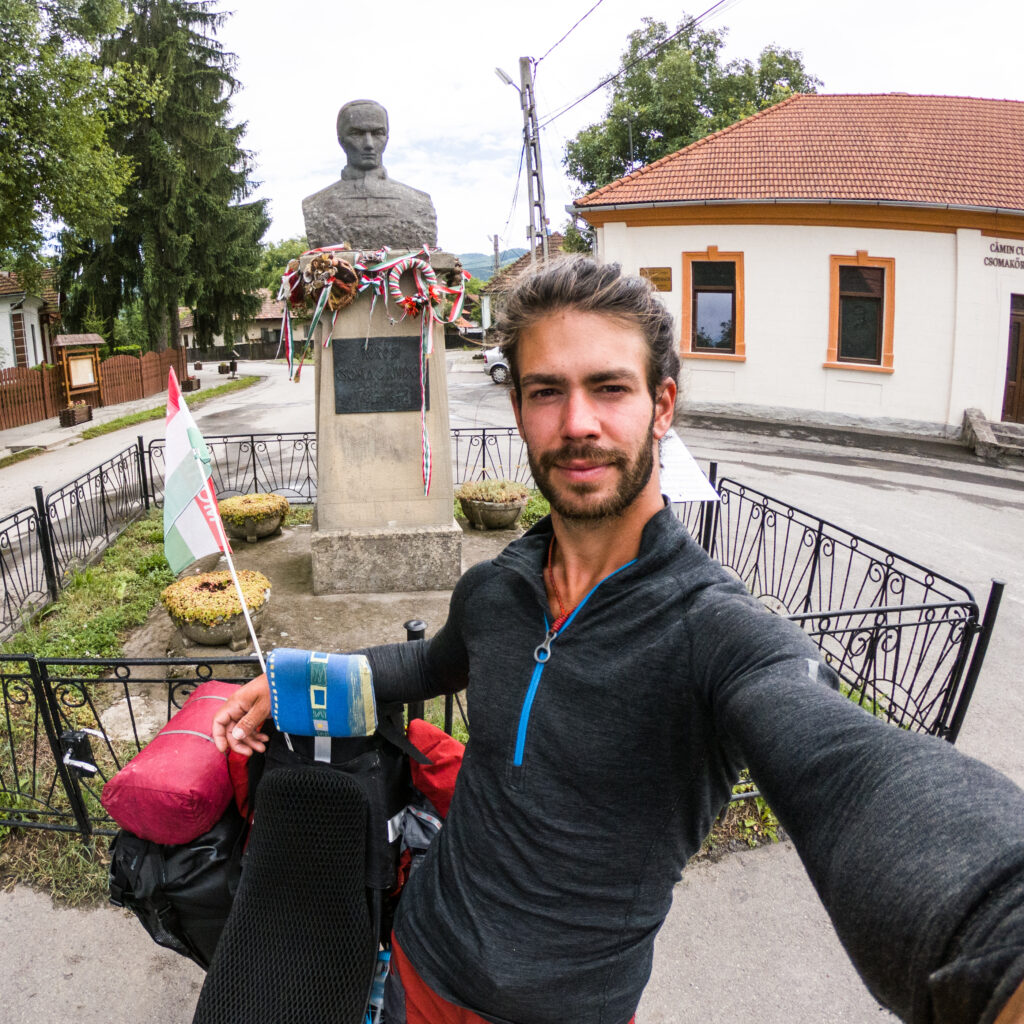
Hungarian linguist and Orientalist Alexander Csoma de Kőrös was born in 1784 in the village of Kőrös (today Csomakőrös in Hungarian and Chiuruș in Romanian) in Szeklerland, Hungary, and died in 1842 in Darjeeling, a town in the Lesser Himalayas in East India. During his twenties, Csoma became acquainted with the various theories concerning the origins of the Hungarians and their unique language: the old Hun-Avarian-Hungarian theory and the idea that Hungarians are related to the Uyghurs, both popular notions at that time with adherents among professors. Csoma, likely based on these notions, developed the idea that the ancient Hungarian homeland had been “left behind” by Hungarians somewhere in Central Asia or among the Uyghurs. Hoping to find Hungary’s ancestral land, and despite his friends trying to dissuade him from doing so, Csoma left Hungary in 1819 with a temporary passport and set off to the East. Although he did not find what he was originally looking for, he lived for two decades in India and Ladakh and studied the Tibetan language and Buddhist philosophy. He opened the door for Western civilization to discover what had been, up until then, a completely isolated culture by writing the world’s first-ever Tibetan-English dictionary and grammar book.
Two centuries later, Viktor Zichó decided to pay tribute to the great Hungarian Orientalist by replicating Csoma’s journey from his birthplace in Transylvania to his grave in the Himalayas.

TransylvaniaNOW: When and how did you decide to make a bicycle expedition replicating the journey of Alexander Csoma de Kőrös?
Viktor Zichó: As a university student in 2014, I read Csoma’s travel diary written by French historian Bernard Le Calloc’h. My father had borrowed it from the library, and I came across it at home and also read it. Basically, I was interested in the traveling part, the journey he made. The way how he accomplished this whole journey and his linguistic research inspired me deeply. His willpower, which was needed to achieve all this, for me is unbelievable and amazing.
Then a few months later, I cycled to Mount Ararat [editor’s note: the sacred mountain of the Armenians, located close to the Turkish-Armenian border], and when we were coming down from the mountain with my mate, we were talking about our plans for our next trips. I said that my next one will be this. I would like to replicate the journey of Alexander Csoma de Kőrös. Because he started out from Hungary in 1819, I thought it would be great to do it in the bicentennial year.
After this, for a long time, I did not think about the trip. But as 2019 got closer, it came to my mind several times, and then in 2018, I decided for good that I’d do it. And from that point, I started the planning.
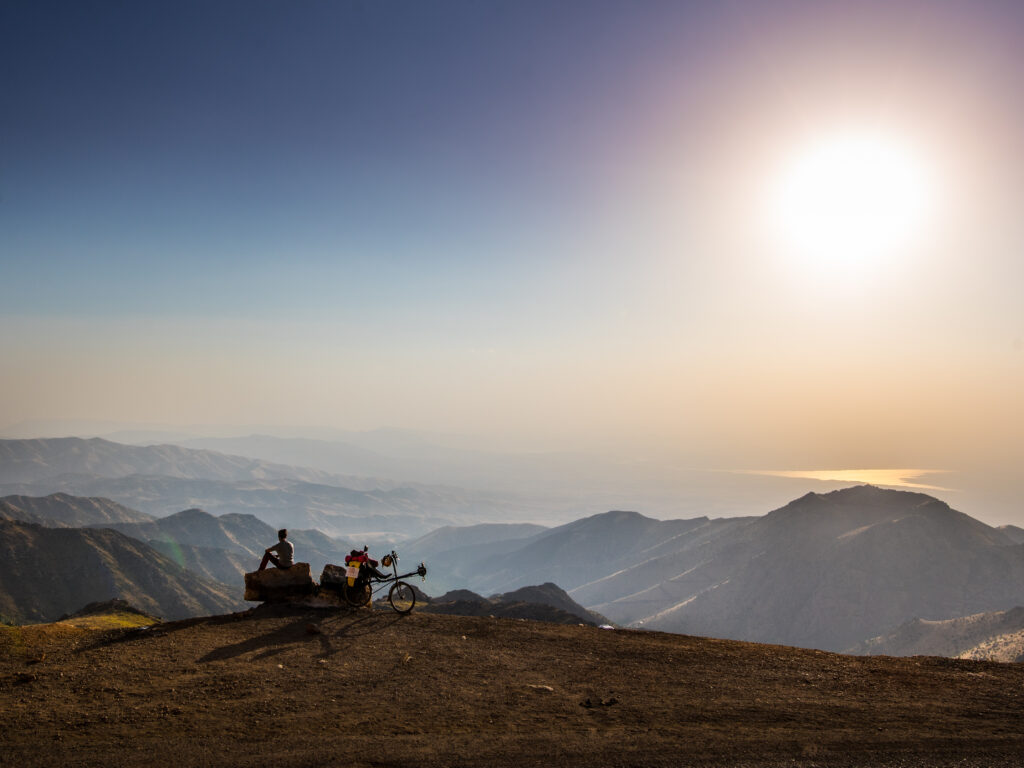
TN: Did you originally plan to cycle more than 13,000 kilometers alone?
V. Zichó: No. First one of my friends raised the idea of biking to Nepal. I said that it was a good idea, and we should definitely do it. Later, he was the one who brought two more people into the project, but then the months were just passing by and they were not really active in the organization, and in the end, they fell out, and I was left alone. But I organized the whole trip for myself.
TN: You started your expedition from your hometown, Komárom, on July 2, 2019, and arrived a couple of days later to Csomakőrös in Szeklerland, where Csoma de Kőrösi was born. What route did you follow from there? How much did you stick to Csoma’s original route?
V. Zichó: I stuck to it as much as I could. Let’s say more than 70% of my route corresponded to his. Csoma traveled the Mediterranean Sea from Enez [Turkish town in the westernmost part of the country near the Greek border] to Latakia [Syrian port city at the easternmost part of the Mediterranean Sea], so here I cycled on the mainland, as close as possible to the sea and to his original route.
Later, I had to skip Mosul and Baghdad because of safety reasons, and then there was a section in Afghanistan where I went further east than his route and returned to the original route later in Pakistan. I also didn’t go up to Kashmir [disputed region between Pakistan and India] after consulting with the owner of the Csoma’s Room Foundation, Balázs Irimiás, who goes to India each year and told me that the situation there was still unstable and traveling through was not really possible.
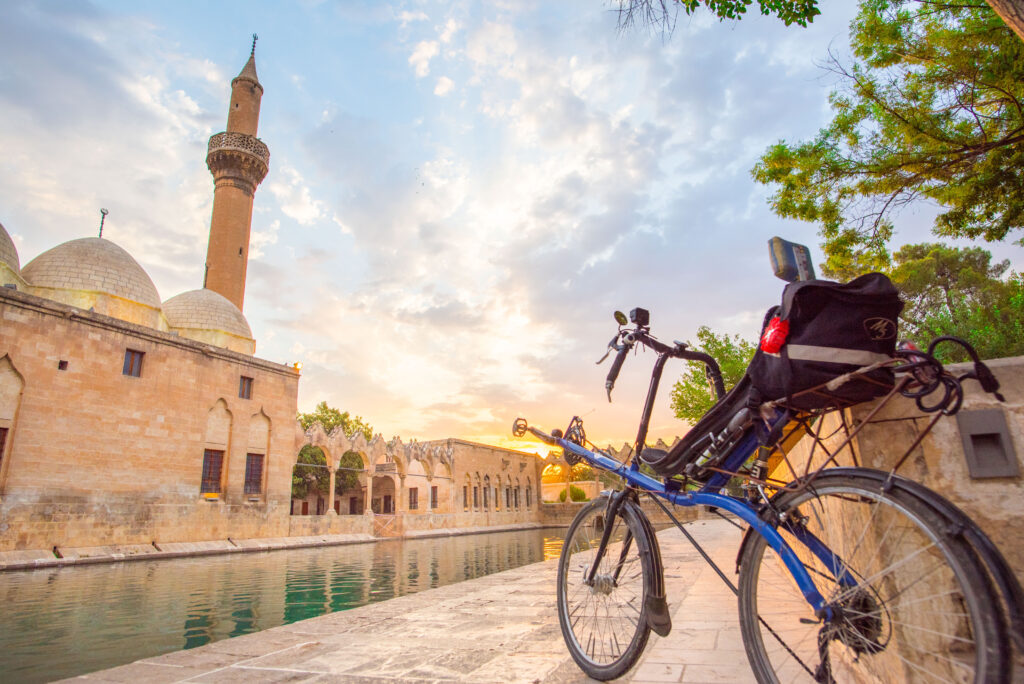
TN: How long was your trip?
V. Zichó: Originally, I planned the expedition to be seven months long, but in the end, it took 11 months. First, I had to wait two weeks for my winter stuff in Tajikistan. I set off for the expedition carrying fewer items than were needed for the whole trip because like this, I could make the first 7,000 kilometers with 10 kilograms less luggage. I agreed with a friend of mine that he would join me for a shorter period, basically for hiking, and he was the one who was supposed to bring me my warm stuff, but he canceled at the last minute and didn’t come. So, I had to arrange for my winter clothes and sleeping bag to be sent from Budapest to Tajikistan, which took two extra weeks.
Then I was imprisoned for a month in Pakistan for illegal border-crossing because although I had a valid visa and passport, I didn’t get an immigration stamp when I entered Pakistan; so, when I wanted to exit the country to India, the authorities didn’t let me. They thought I was a spy and brought me back to a prison where I had to spend four weeks until my release.
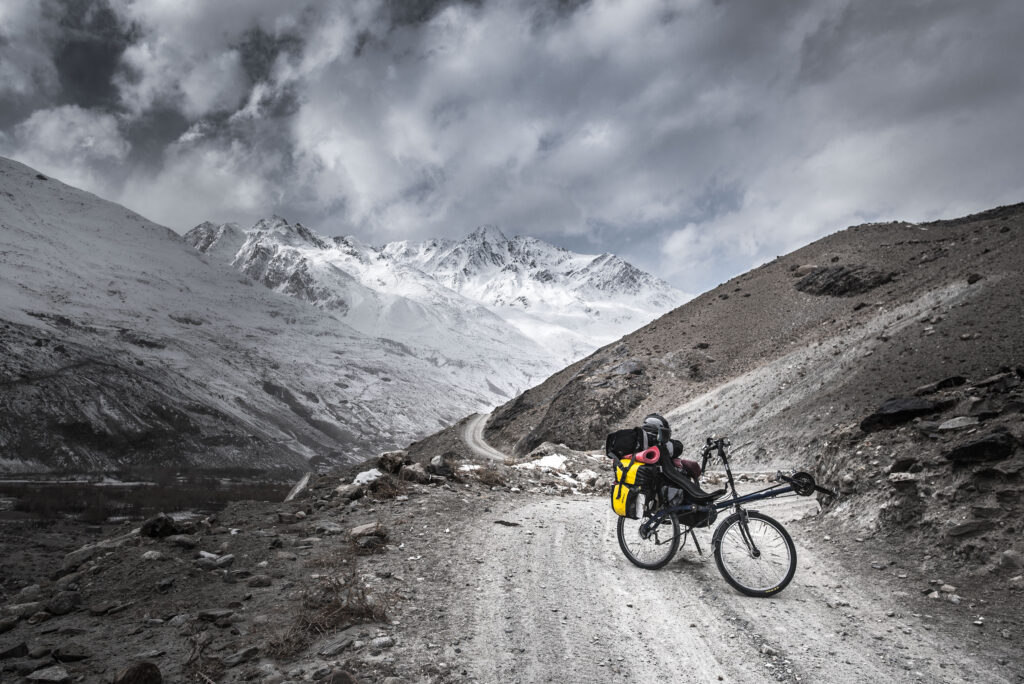
I was also sick for two weeks and later, when I was already completely healthy, I was forced to spend two months in quarantine in Chhapra [town in North-India] despite my negative coronavirus test. My stuff was even stolen in the hospital where I was locked up and even though I got back some of it, my passport was burned by the thief. I had to request a new one from Delhi, which took four weeks to arrive. Meanwhile, I looked up the legal background to understand why they were keeping me locked up. I talked with the District Magistrate who told me that there was no legislation that could be applied to my case, but if I would read between the lines, I would understand why they are keeping me in quarantine. So basically, they treated me like I was stupid, which I did not tolerate at all and escaped from the hospital. I had already cycled 130 kilometers when a motorcyclist kicked me off from my bike and the police brought me back to the hospital, where I had to spend one more week until they finally released me.
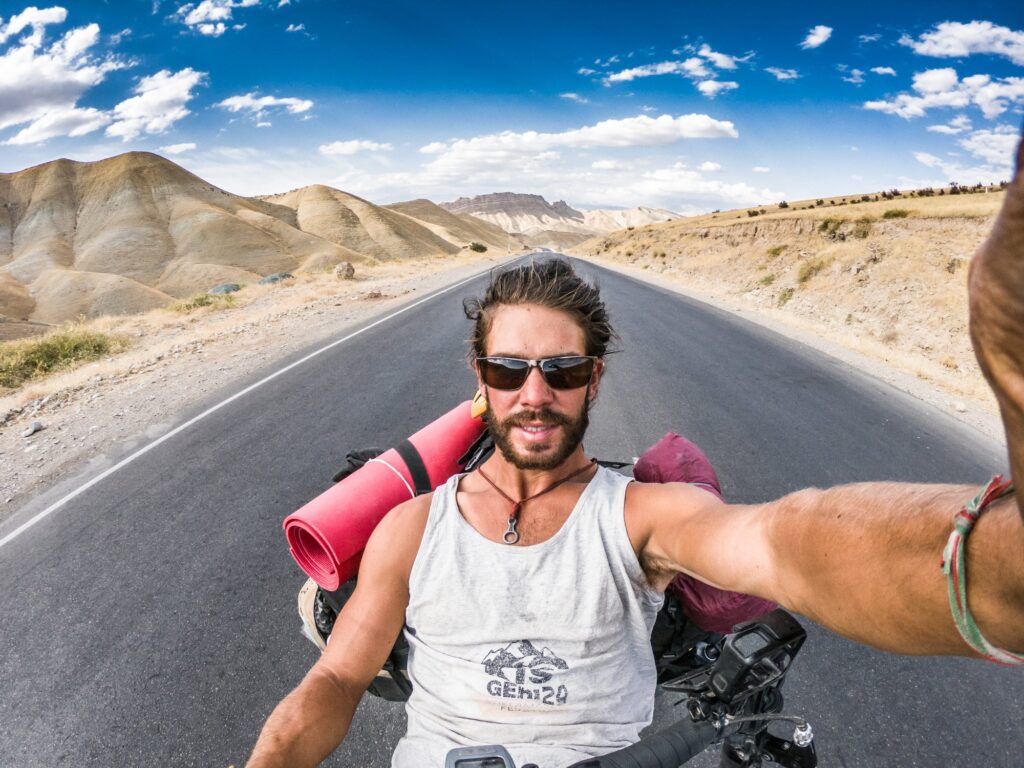
TN: Prison, quarantine, and other difficulties. Did you ever think about giving up the whole expedition?
V. Zichó: Nooo. Well ok, actually in the hospital, it crossed my mind once that maybe I should go home, but then I realized how much work I had put into this whole thing and that the expedition was by then rather a mission for me. And when I considered it as a mission, I simply couldn’t leave. Only 500 kilometers was left, which meant six days for me, and I told myself, “I would rather die than give up now.” I simply had to continue.
TN: What are your three most precious memories from the 11 months?
V. Zichó: Huh, that’s a hard one. The first one is definitely when I reached the grave of Alexander Csoma de Kőrösi. The second is when I was rolling down the snowy slope of the Upper Chitral Valley in Pakistan, at a height of 3,500-2,500 meters above sea level. And the third one is some kind hospitality I received in Iran. I was pedaling toward Mashhad, which is the second-largest city in Iran, and I had already received four or five dinner invitations on the road. And in this case, it meant accommodation too. When people saw me pedaling, they just invited me. Then finally, the people, whose invitation I accepted, were also cyclists and rock climbers and we became very good friends. They took me to the city for sightseeing and cooked for me. One of them even got up at 5 a.m. just to prepare my favorite Iranian food for breakfast.
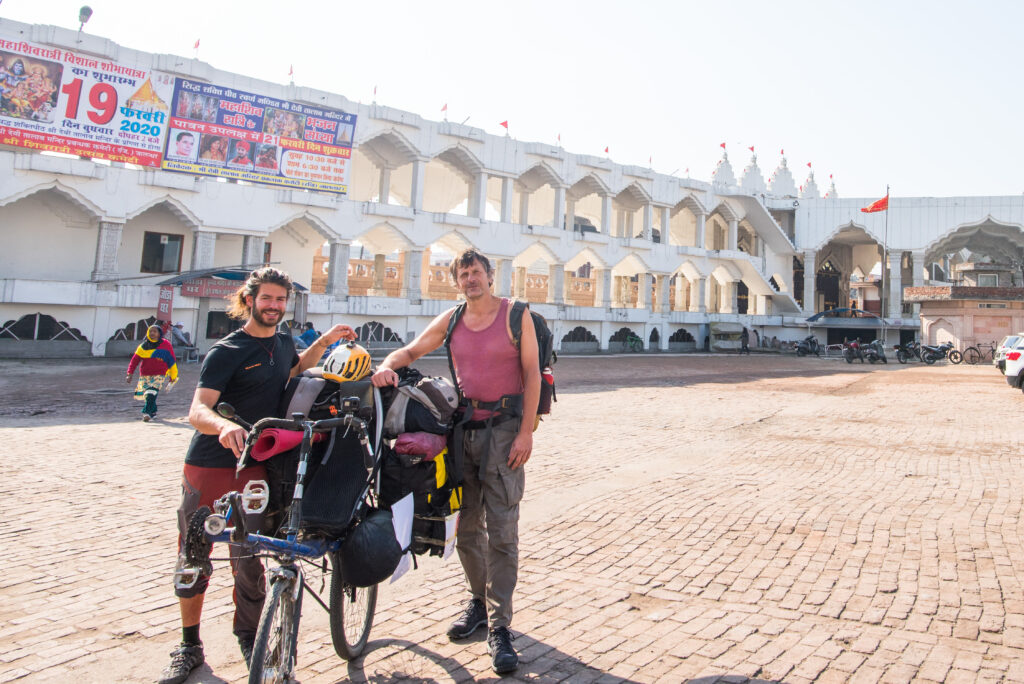
TN: In 2019, journalist Zoltán Pengő from Kolozsvár (Cluj-Napoca) also set off from Transylvania on the route of Alexander Csoma de Kőrösi. You two even met in India. How did you get into contact with each other?
V. Zichó: I began my journey earlier than he, so I was already in Iran when I heard from a friend that somebody else had also set off in the footsteps of Alexander Csoma, but on foot. I contacted Zoltán, and we arranged a meeting. We met in India in mid-February, in the town of Jalandhar. It was very interesting for me because I hadn’t met any Hungarian for more than half a year and because of that, it was even a little bit difficult for me to speak in Hungarian. But it was an amazing feeling that we were working on the same mission.
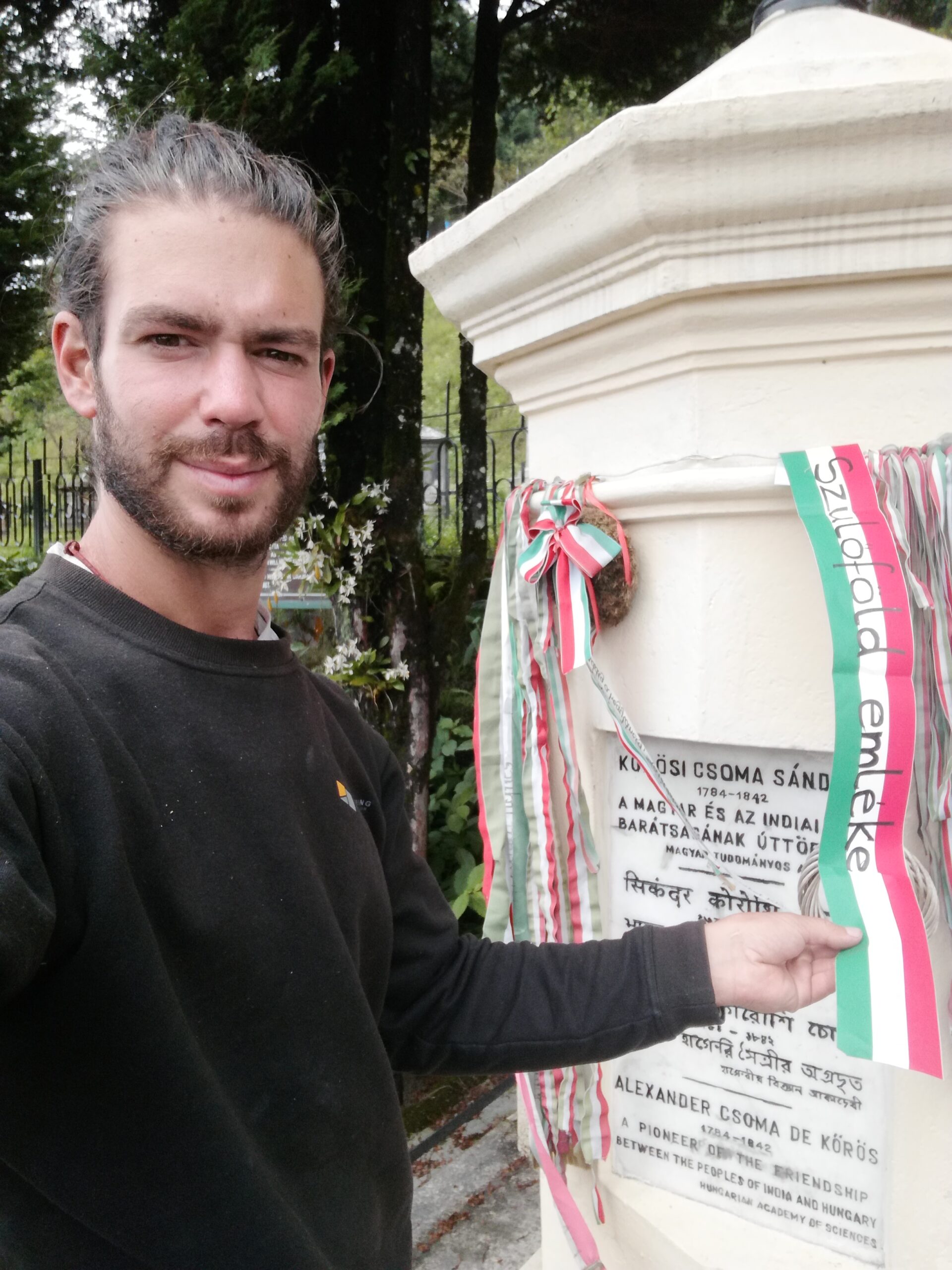
TN: The last two days, you cycled in disguise to avoid authorities and the risk of getting placed into quarantine again. Dressed up like the locals, you also wore a traditional turban and a face mask because of the virus; and instead of your own recumbent bike, you even used a regular one leaving your big luggage behind too. Then you successfully reached Darjeeling. What was it like arriving at the grave of Csoma de Kőrösi after 11 months? What kind of thoughts crossed your mind?
V. Zichó: It was indescribable. I reached the grave, and at first, I wasn’t even thinking about the fact it was over. I only had a big apocalyptic feeling that I had successfully completed the mission, then I spent hours by the grave. I placed the ribbons I had brought from Csomakőrös and planted the nine walnuts that I had also brought from his native village. I hope at least one of them will sprout. By the way, bringing walnuts from Csomakőrös and planting them by his grave was not my idea; some local Szekler youngsters suggested it to me.
After I finished the planting, I was wondering about what it must have been like for Csoma to accomplish this huge journey 200 years ago. I was thinking about what it was like for him to travel in disguise. I also had to pedal in disguise those last two days, which was absolutely depressing, but he had to do this regularly. I only experienced the traveling side of this whole thing, but he didn’t do just that. He also studied a complete language during his journey, about which nobody knew anything at that time. What he accomplished beyond his journey was incredible and brilliant. I look up to him a lot and think that all of us Hungarians should act similarly. We have to honor his memory. We have to commemorate this great Hungarian.

TN: Does your expedition have a message besides the commemoration?
V. Zichó: Yes. The message is that the given word must carry weight. We shouldn’t only talk big, but if we have a goal, if we say it out loud and would like to accomplish something, we should also act on it. Action should back up words. This is essential. I think this is something that is missing from my generation; I see this problem in the case of a lot of my friends. There are no actions behind their words.
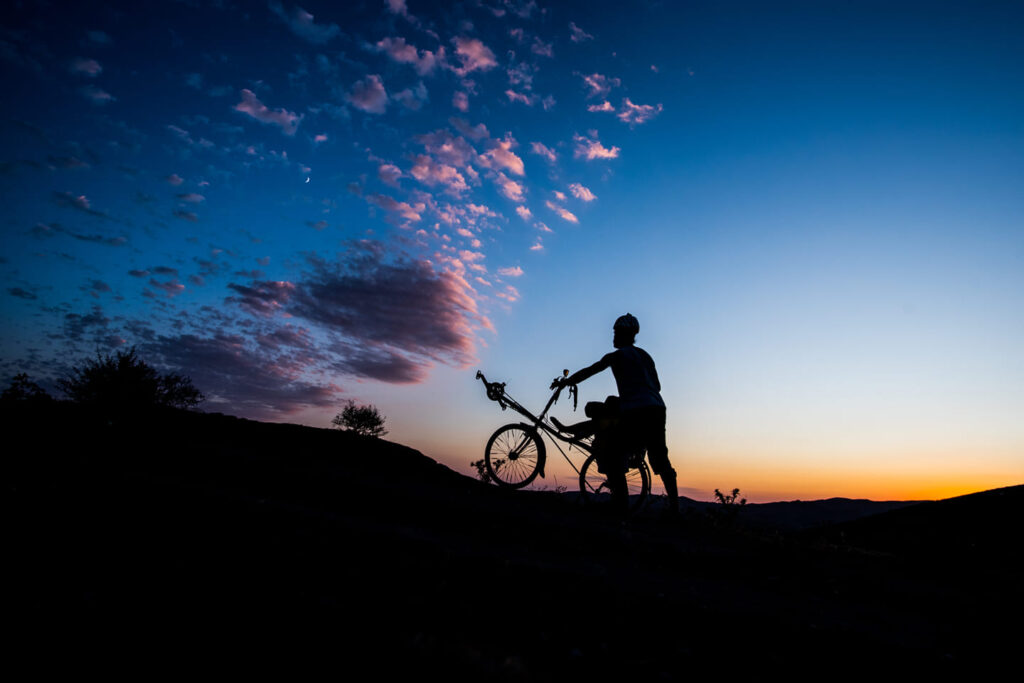
TN: After 11 months, you reached your goal and arrived back in Hungary at the end of June. Do you plan to return to Darjeeling sometime in the future to check out whether any of the nine walnuts actually sprouted? In 5 or 10 years, for example?
V. Zichó: Not in 5 or 10 years, but next year. I’m already organizing another expedition to the Himalayas. I want to cycle all the way along the entire mountain chain from its westernmost point, located in Pakistan, to its easternmost point, located in Tibet. And, among other places, I also want to visit Csoma’s grave in Darjeeling again. This time, I will travel to Pakistan by plane and start cycling from there. According to my plans, this expedition will start in July 2021.
If you would like to read more about Viktor’s extraordinary expedition, you can preorder his book, In the Footsteps of Alexander Csoma, in English or Hungarian here.
Title image: Viktor Zichó in Chitral, Pakistan in November 2019. (Photo: Zicho.hu Facebook)